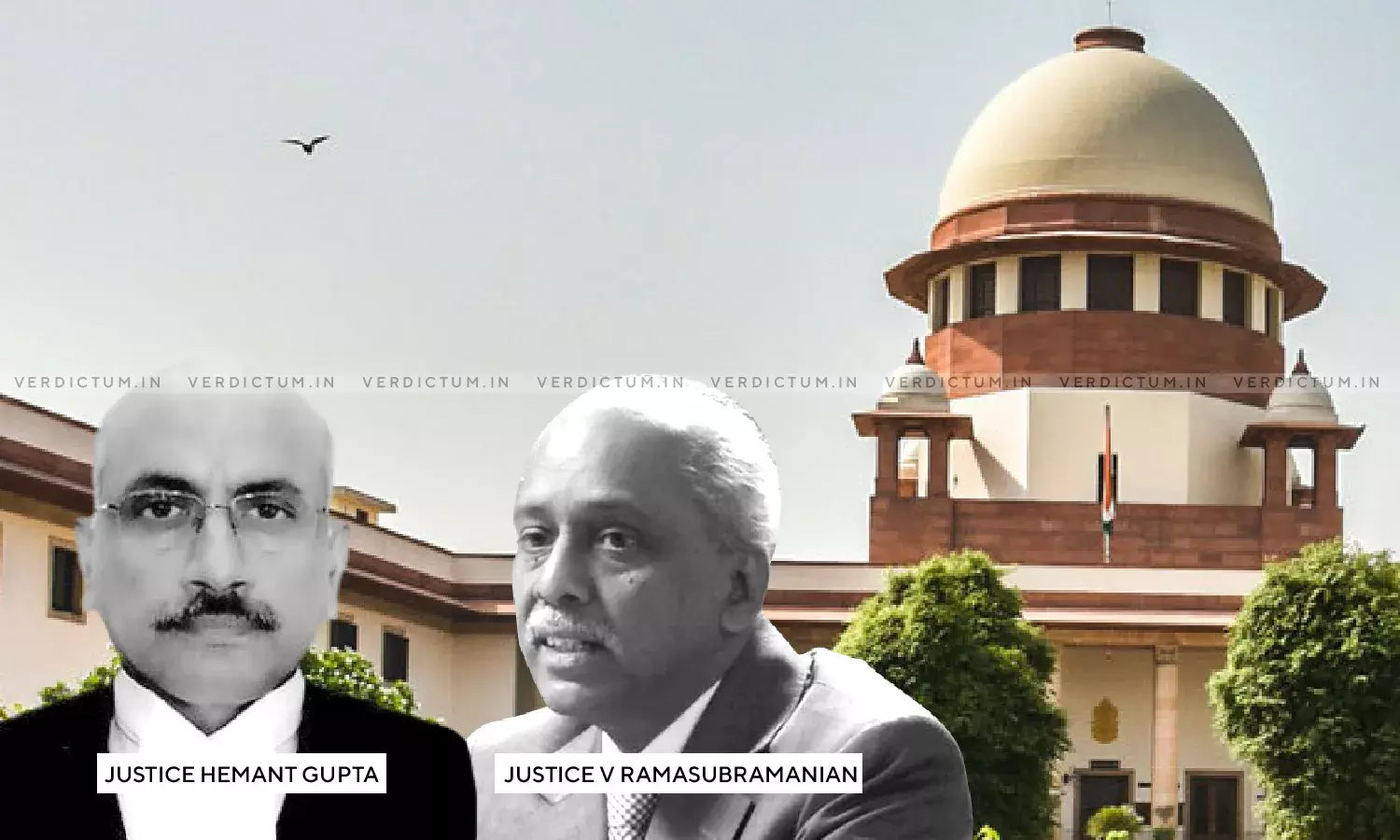Courts Lack Expertise To Examine Economic Activities Of State, Should Refrain From Interfering In Technical Issues – SC

A two-judge Bench of Justice Hemant Gupta and Justice V. Ramasubramanian has held that Courts do not have the expertise to examine the terms and conditions of the present-day economic activities of the State and this limitation should be kept in view.
Further, the Court also observed, "Courts should be even more reluctant in interfering with contracts involving technical issues as there is a requirement of the necessary expertise to adjudicate upon such issues."
The Bench while setting aside the order of the Division Bench of the Jharkhand High Court held that the injunction or interference in the tender leads to additional costs on the State and is also against the public interest.
The Jharkhand High Court had set aside the award of contract for the reconstruction of Nagaruntari-Dhurki-Ambakhoriya Road in Jharkhand to N G Projects Limited in 2019.
The Apex Court noted that the interference in the contract awarded to the Appellant was wholly unwarranted and had caused loss to the public interest.
The Bench placed reliance on Afcons Infrastructure Limited v. Nagpur Metro Rail Corporation Limited & Anr. in which the Supreme Court had held that the owner or the employer of a project, having authored the tender documents, is the best person to understand and appreciate its requirements and interpret its documents.
Further, the Court relied upon Silppi Constructions Contractors v. Union of India and Ors. wherein it was held that the Courts must realize their limitations and the havoc which needless interference in commercial matters could cause. In contracts involving technical issues, the Courts should be even more reluctant because most of us in judges' robes do not have the necessary expertise to adjudicate upon technical issues beyond our domain.
"…the Courts should not use a magnifying glass while scanning the tenders and make every small mistake appear like a big blunder. In fact, the courts must give "fair play in the joints" to the government and public sector undertakings in matters of contract. Courts must also not interfere where such interference would cause unnecessary loss to the public exchequer," the Bench opined.
The Court noted that the position of law with regard to the interpretation of terms of the contract is that the question as to whether a term of the contract is essential or not has to be viewed from the perspective of the employer and by the employer.
"Since the construction of road is an infrastructure project and keeping in view the intent of the legislature that infrastructure projects should not be stayed, the High Court would have been well advised to hold its hand to stay the construction of the infrastructure project. Such provision should be kept in view even by the Writ Court while exercising its jurisdiction under Article 226 of the Constitution of India," the Apex Court held.
The Court further held that the Writ Court should refrain itself from imposing its decision over the decision of the employer as to whether or not to accept the bid of a tenderer.
"The approach of the Court should be not to find fault with magnifying glass in its hands, rather the Court should examine as to whether the decision-making process is after complying with the procedure contemplated by the tender conditions. If the Court finds that there is total arbitrariness or that the tender has been granted in a malafide manner, still the Court should refrain from interfering in the grant of tender but instead relegate the parties to seek damages for the wrongful exclusion rather than to injunct the execution of the contract, the Court held.
The Bench while disposing of the appeal added that the State and its citizens suffer twice, first by paying escalation costs and secondly, by being deprived of the infrastructure for which the present-day Governments are expected to work.
The Bench noted that there have been multiple layers of exercise of jurisdiction causing a delay in the final adjudication of pleas challenging the grant of tender.
In the light of these observations, the Court disposed of the appeal and directed the Respondent – State to allow the Appellant to resume and complete the work by executing the period spent in the stay of execution of the contract.
Click here to read/download the Judgment

